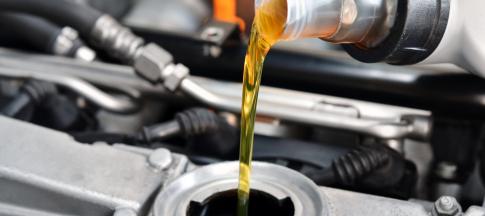
Tyres might seem like a no-fuss necessity for your car, but they can be one of the most important parts of your vehicle.
Buying new tyres can be confusing, and making sure you have the right ones is important for your safety, your car’s performance and can even save you money in the long run.
Read on to find out how to make sure you buy the right tyres for your car.
What different types of tyre are there?
There are lots of different types of car tyre available on the market, so it’s important to consider the type of driving you're going to be doing, and how often you'll be doing it. But what are the options?
Summer tyre
These tyres are perfect for use from spring through to the end of summer. It's generally agreed that summer tyres should be installed up until the weather drops to around seven degrees.
The grooves on these tyres are shallow, and are made with a hard rubber, meaning that they're perfect for use during the warmer months.
They can be installed onto all cars, but the summer tyre is particularly popular with smaller, compact vehicles.
Winter tyre
These can provide heightened grip, even when the temperature goes below seven degrees - as the rubber compound is able to maintain its flexibility in colder climates.
For more information, read our winter tyre guide.
All-season tyre
As the title may suggest, these are the best option for all year round. They're the most versatile and adaptable for both warmer and colder weather, providing good grip and stopping distances for your car.
Part-worn tyre
Opting for part-worn tyres means that they've already been used on a previous car. This may be because it was written off, but still had working tyres.
Although worn down, they still must meet the minimum legal tyre depth in the UK.
These are a great option for those trying to cut the costs, and are available to buy on the high street and online. Check with your mechanic if you're unsure about which part-worn tyres would be suitable for your vehicle.
Run flat tyre
Only available for installation on vehicles with a dash tyre pressure monitor, run flat tyres are designed to continue to work after you get a puncture on the road.
A great option for those who travel long distances, run flats avoid the necessity to immediately pull over when you get a flat tyre. These are usually more expensive than standard tyres.
What type of tyre should I buy?
This depends on what car you own, the climate and terrain you'll be driving in, your average mileage and your budget.
If you’re still unsure, ask your mechanic to do an assessment of your vehicle and ask for their recommendation.
Whichever tyre you choose to buy, make sure that you fit the same type onto all four wheels!
What is the minimum legal tread depth in the UK?
In the UK and Europe, the legal requirement for your car’s tread depth is 1.6mm across the centre three-quarters of the tyre.
How can I check if my tyres are in a good condition?
There are a few ways you can make sure your tyres are in good nick.
Pressure
Tyre pressure is different depending on your vehicle, so should be checked regularly in accordance with your car handbook.
If you have a pump you can check your tyre pressure at home, or alternatively you could use the air machine at a petrol station or book an appointment with your local garage.
Depth
The easiest way to check the depth of your tyres is to use the 20p test. The outer edge of a twenty pence piece is approximately 1.6mm, so placing one in the centre of the tread can be a simple tool for measurement.
General condition
Check regularly for any nicks, punctures or holes on your tyres. If you suspect they may have fallen into disrepair, take your car for a service.
How long does the average tyre last?
There's no definitive answer to this, as every road user will use their tyres differently to others. Usually, they'll last around 5-6 years.
Will changing my tyres affect my insurance?
If they're fitted properly and are in good legal working condition, changing your tyres should not affect your insurance.
For more information, contact your insurer.


